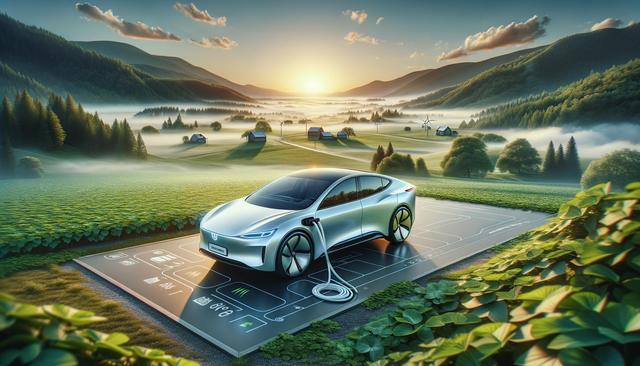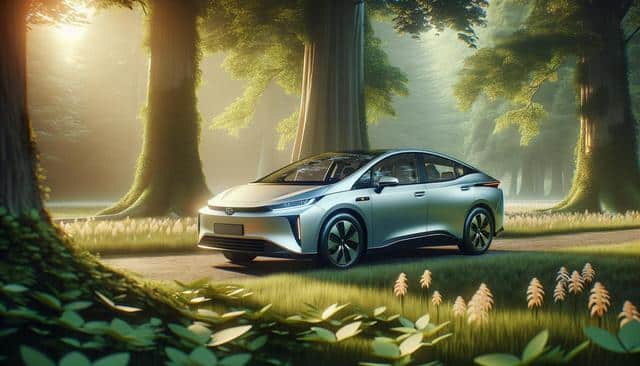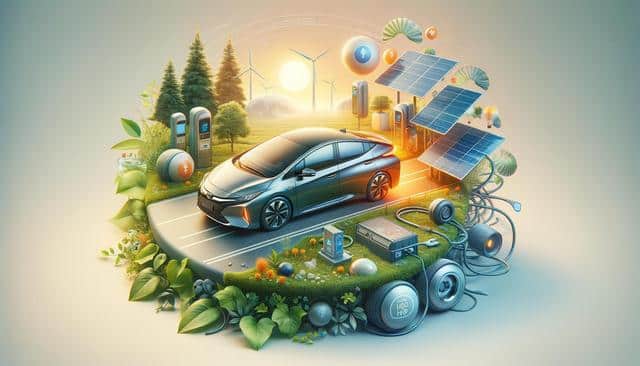
Understanding Hybrid Cars: A Smart Move Toward Sustainable Driving
What is a Hybrid Car?
A hybrid car combines two power sources: an internal combustion engine and an electric motor. This dual setup allows the vehicle to switch between gasoline and electricity, or use both simultaneously, depending on driving conditions. The integration of these systems helps improve fuel efficiency and reduce carbon emissions. Over the past decade, hybrid technology has evolved significantly, leading to a broader range of models and performance capabilities. Drivers now have more choices when it comes to selecting a vehicle that aligns with both their lifestyle and environmental values.
The main types of hybrid vehicles include:
- Full hybrids – Can run on just the engine, just the electric motor, or a combination of both.
- Mild hybrids – Use the electric motor to assist the engine but cannot run on electricity alone.
- Plug-in hybrids – Have larger batteries that can be charged externally, allowing for extended electric-only driving.
Each type has its advantages, depending on usage patterns, commute distances, and access to charging infrastructure. As awareness of climate change and fuel economy grows, the appeal of hybrids continues to rise, making them a compelling alternative to traditional vehicles. Learn more about how hybrid systems are reshaping vehicle efficiency at https://go.jexli.com/postback?clickId={click_id}&payout={epayout}&p2={campaign}.
Benefits of Driving a Hybrid
Hybrid vehicles come with a range of benefits that make them attractive to modern drivers. From lower fuel costs to reduced environmental impact, hybrids offer a practical solution to many transportation challenges. One of the most significant advantages is fuel efficiency. Because hybrids use their electric motor during low-speed driving or idling, they consume less gasoline, especially in urban environments where stop-and-go traffic is common.
Additional benefits include:
- Reduced emissions – Lower reliance on gasoline decreases greenhouse gas output.
- Tax incentives – Many regions offer rebates or incentives for purchasing hybrid vehicles.
- Quieter rides – Electric motors operate more silently than combustion engines.
- Lower maintenance – Regenerative braking and reduced engine use can result in less wear and tear.
Hybrid cars also align with growing consumer interest in sustainability. They represent a transition phase between traditional gas-powered vehicles and fully electric cars, offering a familiar driving experience while incorporating eco-friendly technology. To explore how these advantages can apply to your lifestyle, visit https://go.jexli.com/postback?clickId={click_id}&payout={epayout}&p2={campaign}.
How Hybrid Technology Works
The technology behind hybrid vehicles is both innovative and efficient. At the core of a hybrid system is the powertrain, which includes both the gasoline engine and the electric motor. These components are managed by a sophisticated control unit that determines the most efficient way to power the vehicle under varying conditions.
Key components of hybrid systems include:
- Battery pack – Stores energy used to power the electric motor.
- Electric motor – Drives the car in conjunction with, or instead of, the gasoline engine.
- Internal combustion engine – Provides power and charges the battery when needed.
- Regenerative braking – Captures energy during braking and feeds it back into the battery.
During acceleration, hybrids may use both the engine and motor for extra power. At cruising speeds, the gasoline engine often takes over, while the electric motor supports when necessary. In stop-and-go traffic, hybrids can operate entirely on electric power, helping to lower fuel usage. For a deeper look into how these systems function, check out https://go.jexli.com/postback?clickId={click_id}&payout={epayout}&p2={campaign}.
Cost Considerations and Long-term Value
While hybrid cars sometimes come with a higher upfront cost compared to traditional vehicles, they can offer long-term savings through improved fuel efficiency and lower maintenance. These savings can accumulate over time, especially for drivers with longer commutes or those living in cities where fuel prices are higher. Additionally, many hybrid models retain their value well, due to growing demand and a reputation for reliability.
Financial aspects to consider include:
- Fuel savings – Reduced consumption means fewer trips to the gas station.
- Incentives – Government programs may offset purchase costs.
- Resale value – Hybrids are often in demand in the used car market.
- Maintenance – Fewer oil changes and brake replacements can lower upkeep expenses.
When evaluating whether a hybrid is right for you, it’s important to consider your driving habits and local fuel costs. In many cases, the investment pays off over time, making hybrids a practical and economical choice. For tools to help calculate potential savings, visit https://go.jexli.com/postback?clickId={click_id}&payout={epayout}&p2={campaign}.
Choosing the Right Hybrid for Your Needs
With an increasing number of hybrid models available, selecting the right one depends on your individual needs and preferences. Factors such as driving range, vehicle size, and available features play a significant role in the decision-making process. Whether you’re looking for a compact city car, a family SUV, or a performance-oriented model, there’s likely a hybrid that fits your requirements.
Consider these points when choosing a hybrid:
- Daily commute distance – Helps determine if a plug-in hybrid is practical for you.
- Passenger and cargo space – Important for families or frequent travelers.
- Driving environment – Urban areas may benefit more from electric modes.
- Availability of charging stations – Especially relevant for plug-in hybrids.
Test driving different models and reviewing feature lists can help narrow down your options. Many manufacturers offer various trims and configurations to meet diverse preferences. To start comparing models and find one that matches your lifestyle, explore more at https://go.jexli.com/postback?clickId={click_id}&payout={epayout}&p2={campaign}.
Conclusion: Embracing a Smarter Way to Drive
Hybrid cars offer a compelling blend of efficiency, technology, and environmental consideration. They serve as a bridge between traditional and fully electric vehicles, allowing drivers to reduce their carbon footprint without sacrificing convenience or performance. For environmentally conscious consumers, commuters, and anyone seeking long-term cost savings, hybrids present a thoughtful alternative in today’s automotive landscape. As the market evolves and infrastructure improves, hybrid vehicles are likely to play an even more prominent role in the future of personal transportation.


